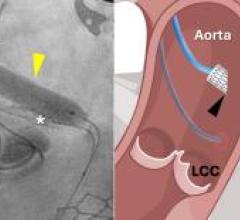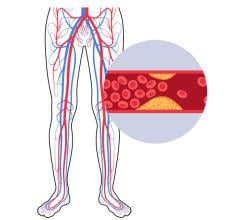March 20, 2009 - Stanford University School of Medicine researchers have pooled three years of individual patient data to compare the effectiveness of coronary artery bypass surgery versus angioplasty on specific groups of patients.
Results of the study that looked at raw data from almost 8,000 research subjects show that for patients suffering from multi-vessel coronary artery disease who have diabetes and for patients older than 65, coronary artery bypass graft may be a better treatment choice than percutaneous coronary intervention PCI – also known as coronary angioplasty, the technique of using balloons or stents to widen narrowed or obstructed blood vessels. In patients 55 years and younger, PCI may be the best choice.
“Whether you have diabetes really makes a big difference,” said lead investigator Mark Hlatky, M.D., professor of health research and policy and of cardiovascular medicine at Stanford. “Over several years there’s a much lower rate of death with bypass surgery. The patient’s age was the other major factor that affected outcomes, and this was a bit of a surprise.”
The study, which was published online in The Lancet on March 19, clearly shows the benefits of one course of treatment for specific sets of patients with coronary heart disease over another. For patients with diabetes, the mortality rate after a five-year follow-up was 12 percent for those who had bypass surgery compared with 20 percent for the angioplasty procedure. For patients older than 65, the mortality rate was 11 percent for those who had bypass compared with 15 percent for those who had angioplasty.
“This is the kind of research we’re hoping to have more of so that clinicians and policymakers and patients can make informed decisions,” said Douglas K. Owens M.D., senior investigator at the Veterans Affairs Palo Alto Health Care System and professor of medicine at Stanford.
“Traditionally the goal of clinical research has been to determine if a particular treatment works better than a placebo. Relatively little research has been done to determine if one active treatment is better than another,” added Dr. Hlatky.
David Taggart, M.D,, Ph,D,, professor of cardiovascular surgery at the University of Oxford, refers to the study as “the most definitive and authoritative analyses” of randomized trials comparing bypass surgery to angioplasty in an accompanying editorial, also scheduled to be published online in the March 19 Lancet. What is so significant, he writes, is that this study was able to compare high number of patients by pooling research from 95 percent of available randomized trials.
“This was the right time to do the study,” Dr. Hlatky said. “There was a first wave of studies in which PCI was done using just balloon angioplasty, and then a second wave of studies in which PCI was done using bare-metal stents. We now have long-term outcome data from these studies, which is what we need to provide a fair comparison of PCI with bypass surgery.”
The next generation of studies will include angioplasty done with drug-eluting stents.
In future studies, the researchers hope to analyze the new results from their study to help understand why bypass is more effective for treating diabetes patients and older patients.
The study was funded by the Agency for Healthcare Research and Quality.
For more information: http://mednews.stanford.edu.
News | March 20, 2009


 February 06, 2026
February 06, 2026 









